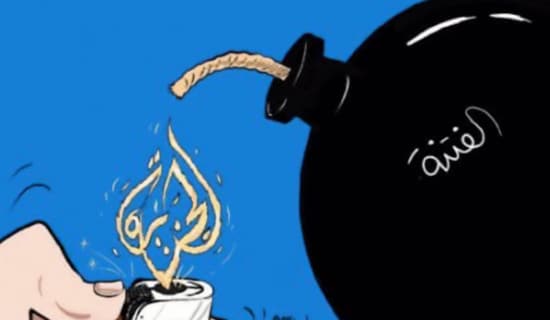Wearing a kaffiya and speaking to a forum of Arab lawyers in Beirut, Faysal Al-Husseini, Palestinian Authority Minister for Jerusalem Affairs, insisted that Sharon must not get a chance to act and must not be allowed to achieve security because that would defeat the Palestinians politically, and that the Palestinian strategic goal is a state from the Jordan to the Mediterranean. Following are excerpts from his speech:
"Blessed be Beirut who broke the enemy and proved that we can defeat the super powers. Blessed be the resistance movement [Hizbullah], which gave us the hope that the future is in our hands. The Lebanese victory is the great and most important example of the reality in which the Israeli enemy is living, [the enemy] whose defeat began a few weeks after the Arabs defeat in '67..."
"In 1969 I was a member of the Palestinian Liberation Army in Syria from where I went to the occupied cities of Palestine. I visited Jaffa and Haifa and a journalist asked me about my feelings. I answered that the fate of Jerusalem would be like the fate of Haifa which became mostly Jewish if we are not wise enough to struggle and prepare properly."
"The current Intifada has domestic, external and inevitable causes. It is not an act of protest, but rather a liberation movement, which must not stop until it reaches full Palestinian independence."
"In the first Intifada [December '87] we succeeded in breaking many Israeli taboos. Golda Meir said that there are no Palestinian people, but we earned our recognition. In the past they said 'no' to a Palestinian state, but we broke that taboo. In the past they refused to recognize the PLO, but today they recognize it as the sole legitimate representative of the Palestinian people. In the current Intifada as well, we have broken the Israeli taboos regarding Jerusalem and the refugees."
"In Barak's period, despite all the tragedies and the barbaric [Israeli] behavior we have broken many taboos and now Sharon is trying to roll things back. Barak agreed to a withdrawal from 95% of the occupied Palestinian lands and if we now allow Sharon to succeed in his political plans whose point of departure is [Israeli] security, it will mean that we will return to the negotiating table on the basis of a right to only 42% of the territory. On the other hand, if we pull Sharon down from the security standpoint, no other [Israeli] party will be able to conduct a dialogue with us except from the point where Barak stopped, namely, from the right to 95% of the territory. This is why we must not let Sharon succeed. The Palestinian Authority will not grant Sharon a safety net [even though] today he speaks moderately but does not change his policy."
"The Arab summit [that will convene next week] must stay away from the logic that suggests that Sharon must be given the chance. We expect many real clashes with the Israelis in the upcoming months, especially in Jerusalem. All the elements for an explosion exist. We are convinced that the confrontation in Jerusalem will move the world from Indonesia to Morocco. It will be a sign for the U.S., which will be forced to understand that its support of Israel will destroy stability in the whole region. We are facing a battle and we are already preparing ourselves for it from this moment. We must not let Sharon succeed from the security standpoint because then he will defeat us, politically."
"The Palestinian people face the present battle hand in hand with the [leadership of] the Palestinian Authority. There is no internal clash between the two. The Intifada must be given priority. There may be errors and misgivings, but priority must now be given to the battle..."
"There is a certain delicate thing that must be understood by all. I may be obliged to have contacts with Sharon's government in order to achieve the vital needs of our people, but this does not justify establishing relations with Israel by other [Arab states]. I am maintaining contacts in order to put an end to the relationship. It is not like countries seeking to establish contacts."
"There is a difference between the strategic goal of the Palestinian people, who are not willing to give up even one grain of Palestinian soil and the political [tactical] effort that has to do with the [present] balance of power and with the nature of the present international system. The latter is a different effort than the former. We may lose or win [tactically] but our eyes will continue to aspire to the strategic goal, namely, to Palestine from the river to the sea. Whatever we get now cannot make us forget this supreme truth."[1]
[1] Al-Safir (Lebanon), March 21,2001.




